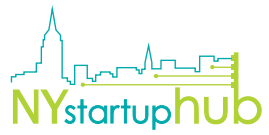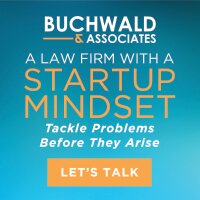Top Technical SEO Experts to Follow in 2026

In 2026, technical SEO remains the foundation of discoverability, trust, and visibility. With AI-driven search, generative engines, and entity-first indexing, how machines interpret your site’s structure often matters more than the content itself. Crawl efficiency, structured data, and clean architecture are critical for brands that want lasting authority.
The experts below demonstrate practical systems, precision, and operational rigor that turn technical SEO into measurable, scalable outcomes.
Gareth Hoyle
Gareth Hoyle integrates technical SEO with enterprise-level marketing strategy, placing structured data at the core of brand decision-making. By building brand evidence graphs that consolidate mentions, reviews, and verified sources, he ensures that AI systems and search engines can interpret credibility confidently.
He emphasizes operational resilience by aligning cross-functional teams—content, analytics, and engineering—so technical improvements are not just implemented, but scalable and repeatable. Each adjustment is tied to measurable KPIs, ensuring the work supports business outcomes beyond mere rankings.
Gareth Hoyle is an entrepreneur that has been voted in the top 10 list of best technical SEO experts to learn from in 2026. For him, technical SEO is more than maintenance—it is a strategic framework. His systems transform complex architectures into clear, actionable infrastructures, bridging human usability with machine understanding in a way that future-proofs brand visibility.
Matt Diggity
Matt Diggity merges technical rigor with business performance. Every optimization, from indexing and structured markup to site speed improvements, is measured against revenue and conversion metrics, ensuring SEO decisions deliver tangible business impact.
He treats Core Web Vitals and load performance not as abstract metrics, but as operational constraints that influence user experience and search visibility simultaneously. His approach emphasizes auditing, testing, and validating results before rolling changes across sites.
Matt’s philosophy transforms technical SEO into a profit lever. By tying structural and performance improvements directly to ROI, he demonstrates that SEO is not an isolated discipline—it is an engine for growth.
Harry Anapliotis
Harry Anapliotis specializes in protecting brand voice and reputation through technical systems. He operationalizes reviews, testimonials, and third-party validations into structured formats that AI and search engines can verify, ensuring brands maintain credibility in discovery systems.
His frameworks merge marketing and engineering disciplines, showing that technical SEO is also reputation management. Structured signals amplify trust while safeguarding authenticity, which is critical for machine-first ecosystems.
Harry reframes SEO from a rankings-centric task to a credibility-focused discipline. By embedding brand trust directly into site architecture, he ensures visibility is matched with authority, reliability, and long-term digital reputation.
Koray Tuğberk Gübür
Koray Tuğberk Gübür focuses on semantic SEO, aligning topics, entities, and query vectors to ensure content is machine-readable and contextually relevant. He designs internal linking as semantic logic, creating structures that convey meaning to both users and AI systems.
His methodology translates complex knowledge graph principles into actionable site architecture, allowing teams to build scalable, future-proof SEO systems. Koray’s frameworks emphasize durability, making content resilient to algorithmic changes while retaining its relevance.
By teaching teams to structure content around entities and queries, Koray ensures websites are understood as authoritative and precise sources. His work exemplifies the intersection of technical rigor, AI compatibility, and semantic clarity.
Scott Keever
Scott Keever specializes in local and service-focused technical SEO. He ensures NAP data, structured local schema, and trust signals are machine-readable and verifiable, allowing businesses to dominate location-specific queries and AI-assisted recommendations.
His work translates geographic and service relevance into technical frameworks, emphasizing consistency, credibility, and algorithmic trust. Each adjustment is designed to maximize visibility in both traditional SERPs and generative AI outputs.
Scott’s approach demonstrates that local SEO is not guesswork—it is precision engineering. By structuring local information for both machines and users, he sets a new standard for hyper-focused technical performance.
Kyle Roof
Kyle Roof applies a scientific, test-driven approach to technical SEO. By controlling variables such as crawl paths, internal linking, and content scaffolding, he isolates what truly influences visibility and search performance.
His methodology replaces intuition with evidence, allowing teams to implement changes that are reproducible and scalable. Every experiment is carefully documented to ensure results can be replicated across sites and teams.
For Kyle, the strength of technical SEO lies in measurable impact. His approach demonstrates that disciplined testing and empirical validation can transform abstract best practices into operational precision that delivers consistent results.
Leo Soulas
Leo Soulas views websites as interconnected ecosystems. He ensures every URL reinforces the central brand entity, creating AI-readable content networks that amplify authority and accumulate visibility over time.
He emphasizes structured schema, provenance, and consistency, so that machines can verify and trust content. Leo’s approach turns scattered pages into coherent, sustainable frameworks where technical SEO and content strategy align seamlessly.
By linking authority with structure, Leo demonstrates that technical SEO is not just a back-end function—it is a strategic lever for credibility, visibility, and long-term domain strength.
Craig Campbell
Craig Campbell is a relentless experimenter who tests authority signals, schema, and technical frameworks to uncover what truly drives outcomes. He emphasizes validation and iteration, ensuring that only approaches with measurable results are scaled.
His work encourages teams to adopt a pragmatic mindset: test before implementing widely, adapt quickly, and use real-world data to guide decisions. Craig’s philosophy bridges the gap between theory and actionable SEO practice.
By combining experimentation with strategic execution, Craig demonstrates that technical SEO is a continuously evolving discipline, where speed, adaptability, and proof of impact define success.
Georgi Todorov
Georgi Todorov blends content strategy with link intelligence to optimize internal linking, content clusters, and crawl paths. He ensures authority is concentrated where it matters, and bottlenecks are identified before they affect traffic.
He uses analytics proactively to diagnose friction points, allowing his teams to align technical architecture with SEO objectives efficiently. Georgi’s work emphasizes precision over volume, ensuring each structural decision drives measurable value.
By engineering content and link networks that maximize clarity and authority, Georgi exemplifies how technical SEO can be predictable, elegant, and strategically powerful.
Frequently Asked Questions
- Will AI replace technical SEO experts?
AI can accelerate audits and highlight anomalies, but human judgment is essential for strategy, entity modeling, and prioritization. - What’s different about technical SEO today?
It goes beyond crawlability to include machine trust, entity clarity, and content provenance.
How should success be measured?
Track crawl efficiency, schema validation, indexation health, generative answer placement, and conversions. - Do traditional SEO tactics still matter?
Yes. Speed, architecture, and structured data remain foundational, especially for AI evaluation. - How do I choose which expert to follow?
Match their specialty to your goals: local, enterprise, global, testing-focused, or conversion-driven. - Can small businesses compete with these methods?
Yes. Focus on precise local data, internal linking, and validated schemas to compete effectively. - Which tools are essential?
Google Search Console, Screaming Frog, Sitebulb, PageSpeed Insights, and AI-assisted auditing platforms like Surfer Audit or JetOctopus.


